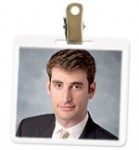With the Olympics in full swing this summer, reruns of The Office have been replaced with reruns of the Olympics (OK, tape-delayed events, but you get the idea). I can only assume this means that every workplace in the entire world is now hosting its very own office-themed Olympics with events ranging from office-chair races to Flonkerton. (In Season 2, Episode 3, we learned that Flonkerton is (obviously) the Icelandic term for “Box of Paper Snowshoe Racing,” the national sport of “Icelandic paper companies.” The Scranton branch competed in Flonkerton as part of the first Dundler Mifflin Olympiad.)
Naturally, and like most fun things at work, workplace-sponsored Olympics (and all extracurricular activities for that matter -– both on and off the premises) have associated legal risks. (Surprisingly, nobody from Dunder Mifflin seems to actually have been hurt in that episode.) If an employee is injured at your office’s Olympics, here are the general legal topics implicated:
First, an employee may seek workers’ compensation benefits. Notably, the injury does not need to be all that significant for workers’ comp to be impacted. For example, in Ezzy v. Workers’ Comp. Appeals Bd., 146Cal.App. 3d 252 (Cal. App. 1st Dist. 1983), a part-time law clerk who injured her finger in a coed softball game was awarded benefits under California’s Labor Code because the injury “occurred in the course of her employment.” The court reasoned that injuries arising from out-of-work activities that are sponsored and benefit the employer are compensable under the Code as having “occurred in the course of employment. ” In Ezzy, the law firm paid for all of the equipment, teeshirts, pizza, and beer and realized a “substantial benefit … by virtue of improved office cooperation, spirit, morale and camaraderie.” The Ezzy case and its reasoning is certainly not unique to California. See, e.g., Bari Italian Food v. Rittger, 527 So. 2d 255, 256-57 (Fla. 1st DCA 1988) (employee injured in out-of-work softball game entitled to benefits under same reasoning as Ezzy).
Second, there are some circumstances when an employee may sue his or her employer (or co-employee) directly for their workplace injury. Although one of the general principles of the workers’ comp system is that compensation under the system is the injured workers’ exclusive remedy, these laws generally provide three main exceptions (depending on the state): (a) the assault exception, (b) the intentional injury exception, and (c) the co-employee exception. Depending on the level of competitiveness going on at your office Olympics, any one of them could apply. Generally, for these exceptions to apply you need: (a) an assailant with some personal animosity (outside of Flonkerton, or whatever Olympic event you are dealing with) toward the victim, (b) someone’s actual intent to injure someone else, or (c) a co-employee’s gross negligence. Some states, such as Arizona, have rejected the gross-negligence exception. See Gamez v. Brush Wellman, Inc., 34 P.3d 375, 380 (Ariz. Ct. App. 2001) (stating that to avoid workers’ comp, there must be a “genuine intentional injury, comparable to an intentional left jab to the chin”).
The point is, a company-sponsored office Olympics comes with risk. Hopefully, nobody in your office is throwing the intentional left jab to win a game of “Pam Pong” (Angela’s game of counting how many times Jim leaves his desk to talk to Pam). Perhaps a little advanced planning can keep your office Olympics relatively uncompetitive and injury-free.


